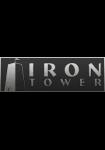
Iron Tower Studio - RPG Developer Roundtable
Iron Tower has collected an impressive 15 developers for a sweet roundtable discussion on setting, story and characters. There's too much to do justice here but let's take a grab from each section. Chris Avellone on setting:
Before beginning, we usually have a sense of what the engine will be for the game and what "type" of RPG we're creating (action, turn-based, 3rd person party, etc.). Following that, I try to absorb as much about the genre as possible, including any tangential or off-the-beaten path explorations of that genre (for example, I studied the Expanded Universe in Star Wars extensively, and for the Aliens genre, I also made sure to cover all the Predator vs. Aliens material as well as all the Dark Horse books and novels). The reason for this is pretty simple – one, you don't want to do a story or character someone else has already done in the field. Second of all, it lets you start listing all the hallmarks of the genre and what the core appeal is.
So, let's take Aliens as an example. What's cool about Aliens?
Well, it's scary. But why?
David Gaider on story structure:
Tough call. Taking control away from the player isn't always a bad thing -- complete freedom to wander can be great, but it isn't always compatible with a strong narrative -- yet it can be tricky. It's like in a tabletop game, I don't really mind if the storyteller is guiding me with a strong hand so long as we're heading somewhere interesting. I suppose a large part of it is the unspoken contract you make with the player at the beginning of the game. If you imply that they will have complete freedom to do whatever they like and go wherever they wish, and then suddenly they're restricted on all fronts, that's a turn off. If, however, you are up front with the idea that this is a directed story about a particular person or a particular event a player can be more forgiving with some linearity. I think the thing that you can't compromise on is the idea that the player has some ability to direct their part in the story's events, not without losing that part of the game that makes it an RPG. How they react, if not always everything they do. A player may not need to make choices about every single thing in the game, but when those choices are made the game should acknowledge them... And occasionally those choices should result in some kind of significant consequence. Or why am I bothering? Why give me those choices in the first place if all you wanted to do was tell me YOUR story?
...and George Ziets on writing characters:
Character development is a pretty organic process, and it almost never happens in one fell swoop – not for me, anyway. Characters emerge gradually, as design documents are created, as I’m writing their dialogue, or as I’m musing about them over breakfast. In initial documents, they’re usually nothing more than a name and a role in the story – and then they flesh themselves out (as quests, setting, and other characters are developed), a little at a time. By the time I’m sitting down to write their dialogue, I often know a good deal about them… but not always.
The full cast is Chris Avellone, J.E. Sawyer, Kevin Saunders, George Ziets, David Gaider, Alan Miranda, Luke Scull, Mat Jobe, Russ Davis, Jeff Vogel, Thomas Riegsecker, Jay Barnson, Jason Compton and Gareth Fouche.

